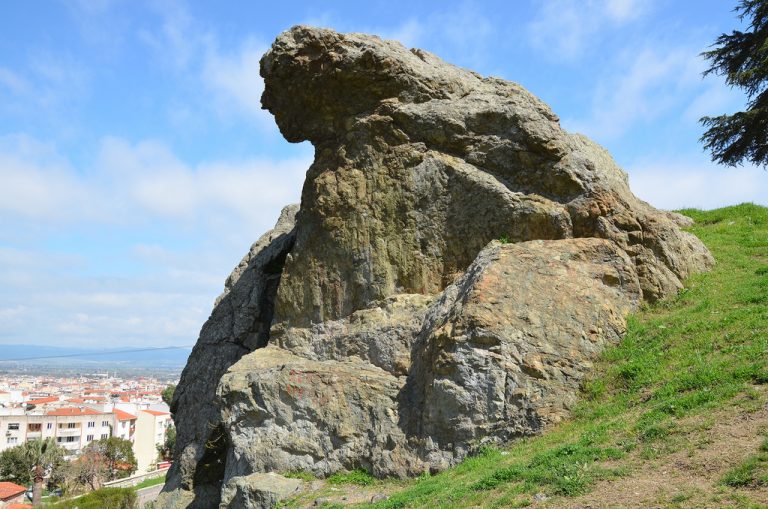Ish-bosheth Murdered
4 When Ish-bosheth, Saul’s son, heard that Abner had died at Hebron, his courage failed, and all Israel was dismayed. Now Saul’s son had two men who were captains of raiding bands; the name of the one was Baanah, and the name of the other Rechab, sons of Rimmon a man of Benjamin from Beeroth (for Beeroth also is counted part of Benjamin; the Beerothites fled to Gittaim and have been sojourners there to this day).
Jonathan, the son of Saul, had a son who was crippled in his feet. He was five years old when the news about Saul and Jonathan came from Jezreel, and his nurse took him up and fled, and as she fled in her haste, he fell and became lame. And his name was Mephibosheth.
Now the sons of Rimmon the Beerothite, Rechab and Baanah, set out, and about the heat of the day they came to the house of Ish-bosheth as he was taking his noonday rest. And they came into the midst of the house as if to get wheat, and they stabbed him in the stomach. Then Rechab and Baanah his brother escaped. When they came into the house, as he lay on his bed in his bedroom, they struck him and put him to death and beheaded him. They took his head and went by the way of the Arabah all night, and brought the head of Ish-bosheth to David at Hebron. And they said to the king, “Here is the head of Ish-bosheth, the son of Saul, your enemy, who sought your life. The LORD has avenged my lord the king this day on Saul and on his offspring.” But David answered Rechab and Baanah his brother, the sons of Rimmon the Beerothite, “As the LORD lives, who has redeemed my life out of every adversity, when one told me, ‘Behold, Saul is dead,’ and thought he was bringing good news, I seized him and killed him at Ziklag, which was the reward I gave him for his news. How much more, when wicked men have killed a righteous man in his own house on his bed, shall I not now require his blood at your hand and destroy you from the earth?” And David commanded his young men, and they killed them and cut off their hands and feet and hanged them beside the pool at Hebron. But they took the head of Ish-bosheth and buried it in the tomb of Abner at Hebron.
(ESV)
2 Samuel 4 Commentary
by Brad Boyles
In 2 Samuel 4, we see the collision of two different kingdoms.
Humanity’s kingdom operates within an attitude of power and opportunity. The leaders in our world grab life by the horns and strive for absolute control. In ancient times, it was no different. To help a new king ascend into power was considered opportunistic, especially if you believe that new king is more powerful than the current one. Man always wants to be on the side with the greatest power.
They presented the head to King David at Hebron and said to him, “Here is the head of Ishbosheth, the son of your enemy Saul, who tried to kill you. Today the LORD has allowed Your Majesty to take revenge on Saul and his descendants.”
2 Samuel 4:8 GNB
The main issue with their request is found in their assumption that David reciprocated their values. Rechab and Baanah may have believed that “only the strong survive.” They may have thought David preferred to take revenge on Saul and that he just never had the opportunity. In fact, I would say they assumed this to be true. But David did not typically think in terms of the kingdom of man. David exemplified the qualities of the kingdom of Heaven.
David answered them, “I take a vow by the living LORD, who has saved me from all dangers!
2 Samuel 4:9 GNB
David didn’t need mobsters to go put a hit on his next victim. He didn’t operate like that. King David vowed to wait on the Living Lord, and had experienced enough in life to witness His unbelievable faithfulness. Rechab and Baanah probably thought David was insane. How could David defend Saul’s family? They had caused him so much stress, grief, and anxiety. They had prolonged his rightful reign as king. They had caused bloodshed and evil.
Yet here, David defends his enemies. By ordering for the death of these men, David was extending justice to Saul’s family. Even though they were against him, David’s highest priority was making sure that he wasn’t against God.
“By this act of justice, David showed to all Israel that he was a decided enemy to the destruction of Saul’s family; and that none could lift up their hands against any of them without meeting with condign punishment.”
Adam Clarke




